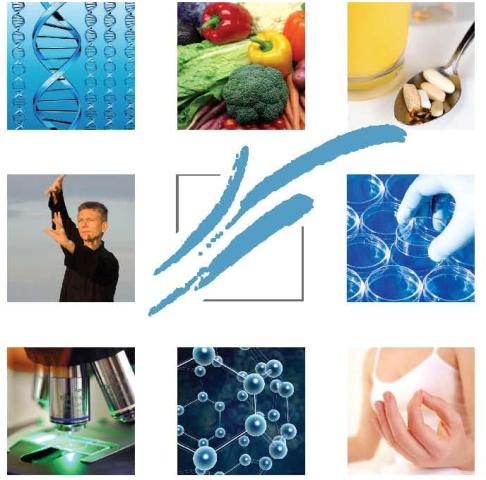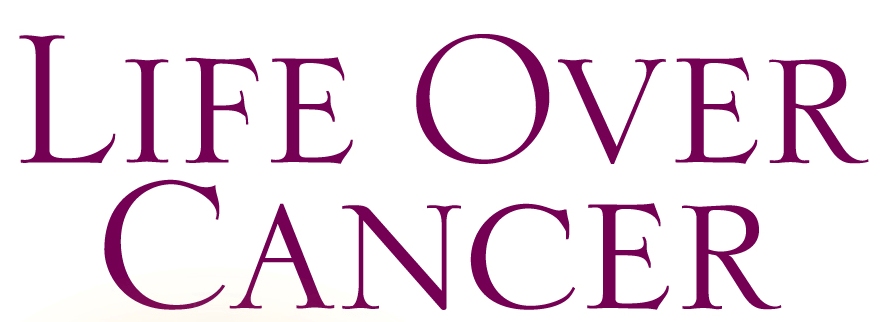
|

|

|

|
|
Supplement Tips
|
Over half of the U.S. population takes daily nutritional supplements. However, what many Americans don’t know is that a manufacturer does not have to prove the safety and effectiveness of a dietary supplement before it is marketed. We offer the following information to help you make a more educated and informed decision regarding the purchase and use of dietary supplements. In addition, we strongly encourage you to inform your healthcare practitioner about all of the supplements and vitamins you are using. This is particularly important if you are undergoing treatment for cancer.
Tips on Selecting High-Quality Dietary Supplements
- First talk to your integrative practitioner, doctor, pharmacist, dietitian or other health-care provider to make sure the type of herb or supplement you would like to take makes sense for your health. Make sure you know the correct name of the herb or supplement, since names of supplements can overlap or be confusing.
- Find information on the product from one of the reputable sources in the section “Reputable Sources for Credible Herb/Supplement Information” below. Find out what part of the plant you should be using (root, leaf, seed etc).
- Use the following 6 points to help you evaluate products. We are not making recommendations for specific commercial brands of supplements. First, quality will vary not only from brand to brand, but if a company manufactures multiple supplements, not all of them will necessarily pass independent testing. In addition, it is possible we would omit some excellent brand names that we simply don't have current information on. You can find sources for information on specific supplement brands in the section below titled: “Reputable Sources for Credible Herb/Supplement Information.”
- Ingredient quality
- Make sure the herb or supplement in the bottle is the plant species or phytochemical that you are looking for, and that it includes the right plant part.
- It may be useful to get a product that is standardized to contain a specific amount of an active phytochemical.
- Quality seals such as USP (U.S. Pharmacopeia) or NF (National Formulary) given by independent organizations are useful though not absolutely necessary indicators of quality. No quality seals have yet been developed for products that contain multiple herbs or other ingredients, so you should not expect to see seals on these products.
- Look for the name and contact information of the manufacturer. The company may have information on quality control procedures available by phone or internet. If it is a company whose supplements you have used successfully in the past, this can be a good guide for making choices.
- Avoid supplements publicized as “miracle cures”, or ones that use testimonials rather than science to back up their use. Check for science based explanations of mechanism of action and research supporting the potential value of compounds and included ingredients.
- Organically grown ingredients and wild herbs that give some indication (on packaging or website) of sustainable harvest practices are the best for the environment – and you! You may also want to look for special information such as Kosher processing or vegetarian/vegan capsules.
- Avoid getting the cheapest supplement you can find. Supplements that are priced much lower than similar products are often of lower quality or have much lower levels of active ingredients.
- Stability
- Look for a lot number or batch number on the packaging. This enables the manufacturer to trace products back to their origin. It does not ensure the product’s quality, but does indicate a responsible manufacturer.
- An expiration date may be useful, and can be used as an indication of freshness, although there are not yet accurate ways known to determine expiration for some types of supplements.
- Minimum safety information
- Make sure you understand the dose of the herb or supplement you will be taking, and the instructions for taking the supplement (i.e. should you take an entire dropper-full or only a drop or two of a liquid supplement? How many tablets per day, and should they be taken with or without food?)
- Supplements should be tested for toxic substances such as pesticides, lead or mercury and this information should be available on the packaging or the manufacturer’s website. Look for hypoallergenic products if you have problems with food sensitivities.
- Expanded safety information
- Look for information about drug interactions or other safety considerations on the supplement package. These would include possible side effects, use during pregnancy, use by children, whether the supplement should be taken with food, etc.
- Efficacy
- Clinical trials are the best indication of whether a supplement is efficacious for a particular condition. The packaging may show data about a clinical trial; you may also be able to find information about whether a particular extract or phytochemical has been clinically tested on the manufacturer’s website. However, do not assume that the lack of a specific health claim for a particular disease means the product lacks value. The FDA does not permit such claims for natural products sold as supplements as opposed to pharmaceuticals or botanical drugs. A specific claim about using a supplement for a disease would suggest the company is not up to date with regulations.
- Bioavailability
- One issue with some supplements is whether the tablet can dissolve in the body. Supplement inserts or websites may have information about dissolution or disintegration tests on a supplement. Most manufacturers should be able to produce such information.
Reputable sources for Credible Herbal/Supplement Information
As more alternative therapies are explored in clinical trials and used by patients, the physician is faced both with having to assess the validity of the evidence for that therapy as well as with recommending a product and protocol to the patient if the treatment appears credible. There are several places one can look to find concise information about a botanical supplement. This brief list of sources is evolving, and new credible sources are being compiled as more clinical evidence is validated.
Books
- The Complete German Commission E Monographs – Therapeutic Guide to Herbal Medicines by Blumenthal M, Goldberg A, Busse WR, Gruenwald J, Hall T, Riggins CW, Rister RS (eds.)
- This book is an English translation of the standard European reference for all herbals.
- The ABC Clinical Guide to Herbs by Blumenthal M.
- This book is unique in that it provides a list of all brand-name products used in various clinical trials. This list is particularly useful since all products used in clinical trial must meet current GMP standards, and are thus more likely to meet basic quality standards. The book includes concise monographs of about 40 commonly used herbal supplements. It also briefly summarizes the current clinical evidence that supports or refutes the purported claims of the herbal.
Internet
- www.consumerlab.com. This service does tests of dietary supplements and furnishes reports on different specific supplement brands. The reports are available by subscription. They discuss potency, contaminants and other problems with supplements.
- www.naturaldatabase.com (Natural Medicines Comprehensive Database) and www.naturalstandard.org. (Natural Standard) are subscription sites that provides a comprehensive list of both herbal and supplement monographs linked to primary literature that supports or refutes purported claims. They are available by subscription. Monographs developed by the Natural Standard staff are also available atwww.medlineplus.gov under the “Drugs and Supplements” link.
- www.herbalgram.org – A site run by the American Botanical Council, a not-for-profit organization that provides a wide variety of types of information on herbal medicine. The publication HerbalGram, available from the website, also provides interesting articles and research reviews on a variety of topics.
- www.herbmed.org – A site operated by the Alternative Medicine Foundation, a not-for-profit organization that provides monographs of 20 herbs free-of-charge and a more comprehensive list with on a subscription or pay-per-access basis. The monographs summarize clinical data on an herbal and link to the primary literature.
|
|
|

|
|
 Keith I. Block, M.D.
Keith I. Block, M.D.
 read our blog
read our blog

 Keith I. Block, M.D.
Keith I. Block, M.D.
 read our blog
read our blog

